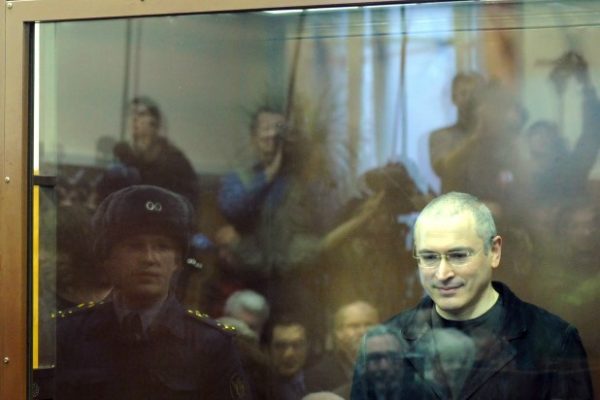Alex Gibney’s latest doc explores and explains the unique circumstances that led to Mikhail Khodorovsky’s ascent as an oligarch in post-Soviet Russia. The first half is dedicated to establishing the political landscape of this period whilst the second focuses upon his imprisonment and his disillusionment with the political developments in Russia.
As a veteran documentarian Gibney’s style has changed little since his success with Taxi to the Dark Side and Enron: The Smartest Guys In The Room and he deploys a familiar structure with a heavy reliance on talking-head interviews to tell the convoluted and sprawling tale. Had the subjects been entertaining or distinguished by content or presentation then the structure would be a moot point but Gibney’s overly informational style develops a chilly tone.
One of the weaknesses in this approach is his decision to include a sort of primer in Russian politics. This aspect of this documentary seems to merit a longer investigation and would have been more beneficial in an episodic analysis. Some colourful title and text flourishes and the translation of on-screen text serves a useful function but the form has moved on and the amount of data presented herein is an outdated doc technique.
As Gibney explores the moral morass of the mega-rich, he explains how Khodorovsky got his hands dirty in loans for shares deals which allowed him to take ownership of state utilities. His corporate malfeasance and conflict with local officials make the viewer ponder why he did not suffer the same fate as Nemtsov, Berezovsky and Litvinenko.
Frustratingly these questions are left unasked and Khodorovsky’s actual responses about his cloudy past as boss of Yukos merely feed the rumours about shady Russian businessmen in London. Despite the hardship that he has experienced and his apparent enthusiasm for recounting his story the editing and subtitling captures the chilly affect Khodorovsky has developed as formerly Russia’s richest man.
After having to sack thousands of workers in one day Khodorovsky reflects on the ‘heavy’ task that had befallen him. When commenting on being linked to the murder of mayor Vladimir Petukhov he again refers to the ‘heaviness’ of this episode in his life. These vague and muddy translations give the impression that he doesn’t discriminate between murder and human resource issues. Gibney’s presentation of his subject is perplexing and a feels like a aesthetic misjudgment as Khodorovsky has an icy demeanour which is not helped by being interviewed in something resembling the Battersea Power Station in Brazil.
Strangely, both Putin and Khodorovsky share the same smirking trait when answering apparently weighty and serious questions. We are left unsure how to feel about this one time mega-rich, hunger-striking, apolitical capitalist turned political crusader who may or may not have arranged a murder, and most certainly ran roughshod over workers rights.
@Filmhouse, Edinburgh from Fri 20 Dec
